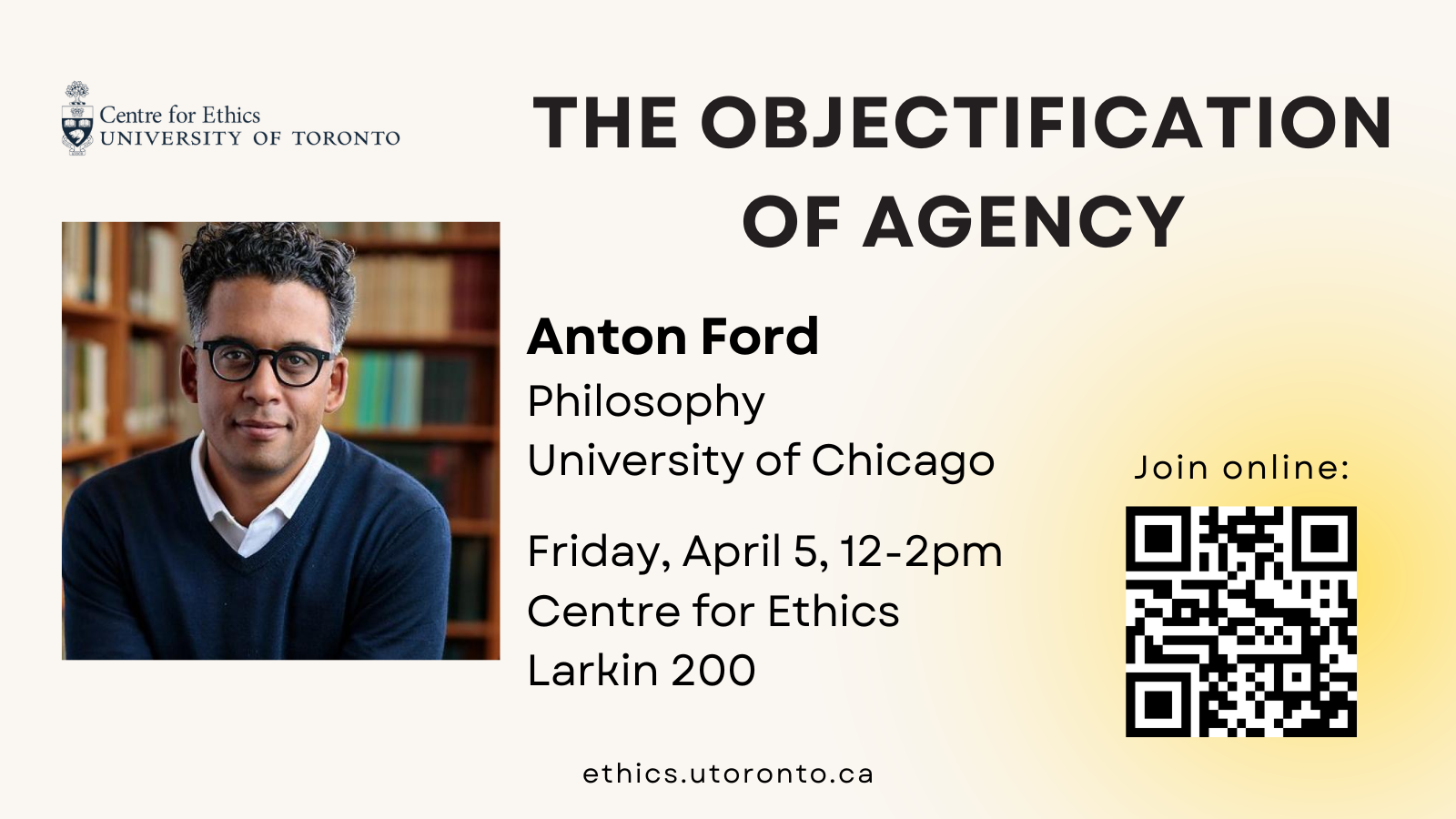
► To stay informed about other upcoming events at the Centre for Ethics, opportunities, and more, please sign up for our newsletter.
The Objectification of Agency
Agents are subjects and objects of thought: subjects, because in order to act they think; objects, because they are among the things that thinking is about. This double-relation to thought raises a question of method for any investigation of agency. If, as Wittgenstein claimed in the Tractatus, “the object of philosophy is the logical clarification of thoughts,” then which thoughts is it the primary task of practical philosophy to clarify? The thoughts that agents think, or those that are about them? The thoughts of which they are subjects, or those of which they are objects? Overwhelmingly, analytic philosophers have pursued the latter course. This is what I call the objectification of agency. It has historically taken two main forms, one in action theory, the other in value theory. The first, which I call explanationism, is the practice of accounting for the nature of action in terms of how an action is explained. The second, which I call normativism, is the practice of theorizing agency in terms of how it satisfies, or fails to satisfy, one or another “norm.” (Value theory is standardly divided into moral and aesthetic theory, according to whether the operative norms are moral or aesthetic; in the first domain, normativism takes the specific form of moralism, in the second, that of aestheticism.) Taken together, explanationism and normativism comprise a considerable portion of practical philosophy as it has been practiced in the analytic tradition, and their influence is widely felt even outside boundaries of what is normally considered practical philosophy. My aim is to bring the pattern to light, and thereby to expose it to critical scrutiny.
► this event is hybrid. Join in person at the Centre for Ethics (Larkin building, room 200) or online here.

Anton Ford
Philosophy
University of Chicago
Fri, Apr 5, 2024
12:00 PM - 02:00 PM
Centre for Ethics, University of Toronto
200 Larkin
